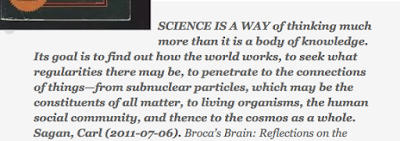Do NGSS hold up to (my developing version of ) STEMS2 Scrutiny?
In an article entitled Boxed In: How the NGSS Impedes Science Teaching written for the blog http://nepc.colorado.edu/ , Jack Hassard sets forth an opinion that the NGSS will not improve science teaching or learning. Mr. Hassard is a former high school science teacher and professor Emeritus of Science Education at Georgia State University.
The author starts off by wondering why there is barely a mention of ecology or sustainability in the NGSS. The few references to ecology leave scratch the surface of scientific ecology- the study of the inter-relationships between species and their environment but in no way address the ideas of deep ecology- experiencing ourselves as part of the living earth and finding our role in protecting the planet. I am among those who feel that a deep ecology is a perspective worth living and worth exposing students to. This lens views human beings as part of the earth, rather than apart and separate from it. This idea is in contrast to the dominant individualism of our culture, where seeing ourselves as separate from our world makes it easier not to be bothered by what's happening in it.
As described by Hassert (2013),
(In NGSS there is …) No connection to the biosphere. Then, when the standards that do relate to sustainability are examined, students learn that sustainability is for humans and the biodiversity that supports them. In a deep ecology context, sustainability would refer to all species of living things, and their importance would not be hierarchical.
This echos my thinking and concern. The earth is something to understand so we can tame it and use its resources. If we are, as Gruenwald contends, the human place-makers then what about the value of biodiversity for its own sake irrespective of humanity? I sometimes wonder if this is the perspective of someone who does not subscribe to “magical thinking’ aka religious dogma. While I do believe deeply that we share a common thread with all humanity and, indeed, with all life I do not believe that thread is the gift of a divine power nor that anything but the rearranging of matter remains of that thread after the death of our physical body. Life is even more precious and worthy of celebrating when you pause to consider the awesome circumstances of forces and cause/effect which produced it. Because I do not see man as something that has been given “dominion” over the earth I do not consider human life and human needs as the reason for the planet- or the universe. I respect without reservation the ability of each person to choose belief or not for themselves and I would never impose my views on my students nor discount their own. However, the classroom is a place to begin to re-write this narrative that the earth can and should take whatever we humans dish out because it was “put here” in our service.
Perhaps I am less strident than author who declares, “In the standards culture, students are pawns in an educational system that is in the interests of the nation’s economy and prosperousness of business and industry.”
The rationale for the science standards is achievement-based. One way to look at the standards is that they use backwards engineering to define the field of science that teachers should cover in their science courses. Backward engineering means starting with an assessment, and then working backwards from it to write standards.
Is that too different from UbD which is a “backwards curriculum” model?
The author cites another educator who believes the new standards will not lead on a path that will improve learning. It will however provide documentation for test development companies and consortia to design online assessments that will be used by bureaucrats to foster “data driven” educational reform.
I feel like I am seeing that in practice with a knee-jerk reaction from some teachers at my school to purchase NGSS- aligned curricula or, worse yet, individual units so that they can “tick off” a list of standards that someone has told them they need to “hit”. I really can’t stand that phrase- “hitting the standard”. How does that even speak in any way to effective teaching practice or provide evidence of any depth of engagement or making of meaning? If we jump onto the NGSS bandwagon are we leaving some important ideas behind? There are ideas which could really change the way we teach not just science but truly the whole child. Are these ideas less viable simply because they do not rely on the economics of PD seminars and new purchased curricula? I am still seeking the balance of managing administrative system mandates with a teaching pedagogy that develops students who have a relationship of more of an involved participant, one who feels connected with and part of the world around them
http://nepc.colorado.edu/blog/boxed-how-ngss-impedes-science-teaching


Comments
Post a Comment